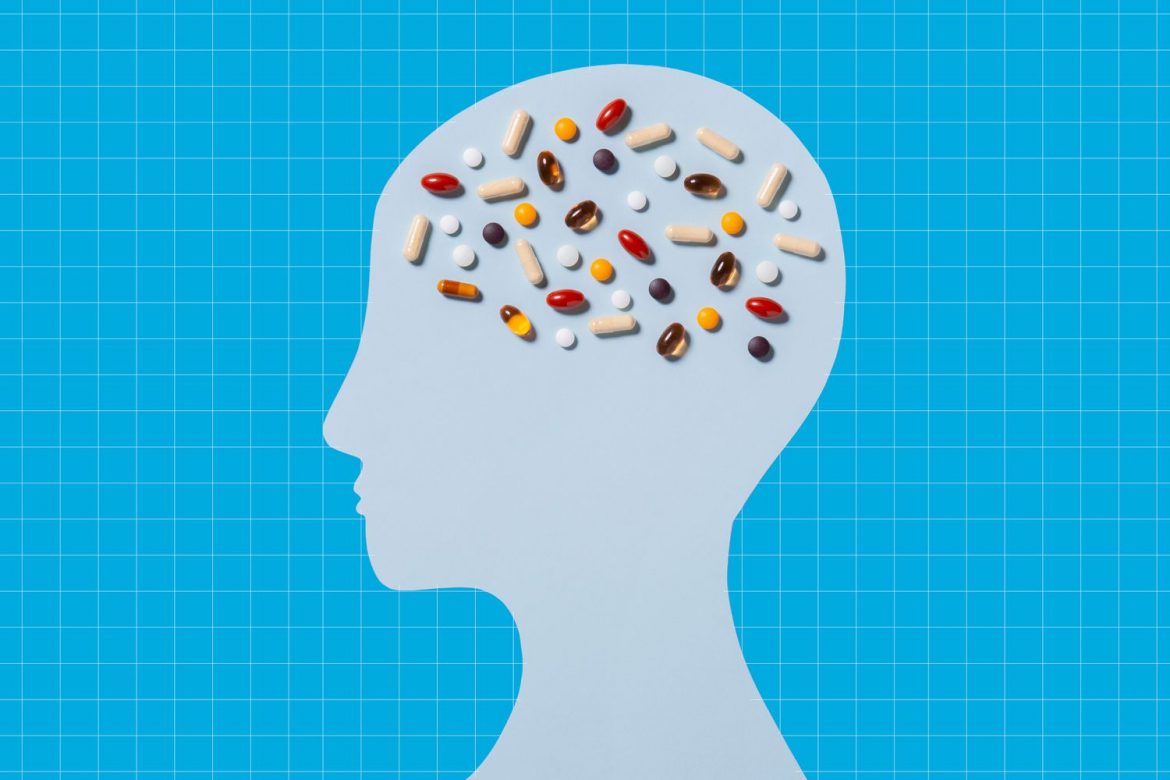:max_bytes(150000):strip_icc():format(jpeg)/This-Vitamin-May-Lower-Dementia-Risk-by-Up-to-49-New-Study-Suggests-a7662d03a574466892b8fe2143188a10.jpg)
- A new study suggests that B vitamins may help lower the risk of disabling dementia.
- Researchers connected riboflavin (vitamin B2) with a 49% lower risk.
- The study only captured vitamin intake from food and drink, not supplements.
You know that moment when you open the pantry and can’t remember what you came looking for? Most of us shrug off those little lapses, but they still spark the same quiet question: Is there anything I can do now to help my brain age well? Diet is one of the few levers we actually control, and a new study suggests that some humble B vitamins, the kind you’ll find in everyday foods, may matter more than we think.
Researchers in Japan followed adults for more than 15 years and just reported in the European Journal of Clinical Nutrition that people who ate the most riboflavin (vitamin B2) had up to a 49% lower risk of developing disabling dementia than those who ate the least. Folate and vitamin B6 also tracked with lower risk, while vitamin B12 didn’t show a clear link. It’s an intriguing pattern that fits what we already know about B vitamins: they’re workhorses in energy metabolism and help regulate homocysteine, a compound tied to vascular and brain health.
No single nutrient is a magic shield, and this study can’t prove cause and effect. But it does add a real-world, long-term data point to the idea that what’s on your plate can support your brain over the decades. Here’s what the researchers did, what they found and how to turn those insights into everyday meals.
How Was This Study Conducted?
Researchers analyzed data from the community-based Circulatory Risk in Communities Study (CIRCS), which enrolled 4,171 Japanese adults ages 40 to 69. Diet was assessed by trained dietitians using a standardized 24-hour dietary recall.
Participants were then followed for a median of 15.4 years. They tracked new cases of dementia serious enough to require daily help, using Japan’s national long-term care insurance records—a trusted source researchers rely on. They compared people who ate the least B vitamins to those who ate the most and calculated their chances of developing dementia, accounting for factors like age, sex, body size, smoking, drinking, medications, and diet.
What Did the Study Find?
Riboflavin stood out: compared with the group with the lowest intake, the highest-intake group had about a 49% lower risk of disabling dementia. People who got more vitamin B6 and folate also tended to have a lower chance of dementia (by about 20%), while B12 didn’t stand out. The riboflavin and B6 connections were stronger among participants who had never had a stroke, hinting that these vitamins could be relevant for non-vascular forms of dementia.
Like all studies, this one had certain limitations. Diet was captured from a single 24-hour recall, B-vitamin supplements weren’t recorded and the researchers couldn’t distinguish Alzheimer’s disease from other dementia subtypes. There were also gaps in surveillance timing in some communities—though sensitivity checks suggested the main findings were robust. As an observational study, the results show association, not causation.
How Does This Apply to Real Life
While no single nutrient can prevent dementia, this study supports a food-first approach that regularly supplies B-vitamin–rich choices. Some of those foods may already be waiting for you in your fridge and pantry—here are just a few:
- Riboflavin (B2) is found in dairy (milk, yogurt), eggs, lean meats and fish, mushrooms, almonds and spinach.
- Vitamin B6 can be found in poultry, salmon, potatoes, bananas, chickpeas and squash.
- Folate is a key nutrient in leafy greens (spinach, romaine), asparagus, avocado, citrus, beans and lentils and fortified grains.
And there are plenty of practical ways to incorporate these foods and the beneficial nutrients they offer into your eating plan. For instance, you can build a grain bowl with lentils, sauteed greens and salmon and bring it along to work for lunch. Or try tossing chickpeas into a spinach salad, like our Apple-Cranberry Spinach Salad with Goat Cheese.
At breakfast, choose fortified whole-grain cereal with milk and sliced banana, or opt for eggs with greens. For snacks, try yogurt with crushed almonds or hummus with veggies.
Because the study didn’t assess supplements and more isn’t always better, check with your healthcare provider before starting a B-complex supplement. Focus on consistent, varied eating patterns rich in plants, whole grains, and lean proteins. That pattern naturally delivers the B vitamins highlighted here along with fiber and other brain-supportive nutrients.
Our Expert Take
In a large Japanese cohort followed for more than 15 years, higher intakes of riboflavin—and to a lesser extent vitamin B6 and folate—were linked with a lower risk of disabling dementia, while vitamin B12 showed no significant association. It’s another nudge toward a balanced diet that routinely includes B-vitamin–rich foods as part of a broader brain-healthy lifestyle.

